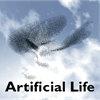The Ethics of Life as It Could Be: Do We Have Moral Obligations to Artificial Life?
IF 1.5
4区 计算机科学
Q4 COMPUTER SCIENCE, ARTIFICIAL INTELLIGENCE
引用次数: 0
Abstract
The field of Artificial Life studies the nature of the living state by modeling and synthesizing living systems. Such systems, under certain conditions, may come to deserve moral consideration similar to that given to nonhuman vertebrates or even human beings. The fact that these systems are nonhuman and evolve in a potentially radically different substrate should not be seen as an insurmountable obstacle to their potentially having rights, if they are sufficiently sophisticated in other respects. Nor should the fact that they owe their existence to us be seen as reducing their status as targets of moral concern. On the contrary, creators of Artificial Life may have special obligations to their creations, resembling those of an owner to their pet or a parent to their child. For a field that aims to create artificial life-forms with increasing levels of sophistication, it is crucial to consider the possible ethical implications of our activities, with an eye toward assessing potential moral obligations for which we should be prepared. If Artificial Life is larger than life, then the ethics of artificial beings should be larger than human ethics.可能存在的生命伦理:我们对人造生命负有道德义务吗?
人工生命领域通过模拟和合成生命系统来研究生命状态的本质。在某些条件下,这些系统可能值得给予类似于非人类脊椎动物甚至人类的道德考虑。如果这些系统在其他方面足够成熟,那么它们是非人类的,并且是在一种可能完全不同的基质中进化的,这一事实不应被视为它们可能拥有权利的不可逾越的障碍。它们的存在归功于我们这一事实也不应被视为降低了它们作为道德关注对象的地位。相反,人工生命的创造者可能对其创造物负有特殊的义务,类似于主人对宠物或父母对子女的义务。对于一个旨在创造越来越复杂的人工生命形式的领域来说,考虑我们的活动可能带来的道德影响至关重要,我们应着眼于评估潜在的道德义务,并为此做好准备。如果说人造生命比生命更重要,那么人造生命的伦理就应该比人类伦理更重要。
本文章由计算机程序翻译,如有差异,请以英文原文为准。
求助全文
约1分钟内获得全文
求助全文
来源期刊

Artificial Life
工程技术-计算机:理论方法
CiteScore
4.70
自引率
7.70%
发文量
38
审稿时长
>12 weeks
期刊介绍:
Artificial Life, launched in the fall of 1993, has become the unifying forum for the exchange of scientific information on the study of artificial systems that exhibit the behavioral characteristics of natural living systems, through the synthesis or simulation using computational (software), robotic (hardware), and/or physicochemical (wetware) means. Each issue features cutting-edge research on artificial life that advances the state-of-the-art of our knowledge about various aspects of living systems such as:
Artificial chemistry and the origins of life
Self-assembly, growth, and development
Self-replication and self-repair
Systems and synthetic biology
Perception, cognition, and behavior
Embodiment and enactivism
Collective behaviors of swarms
Evolutionary and ecological dynamics
Open-endedness and creativity
Social organization and cultural evolution
Societal and technological implications
Philosophy and aesthetics
Applications to biology, medicine, business, education, or entertainment.
 求助内容:
求助内容: 应助结果提醒方式:
应助结果提醒方式:


